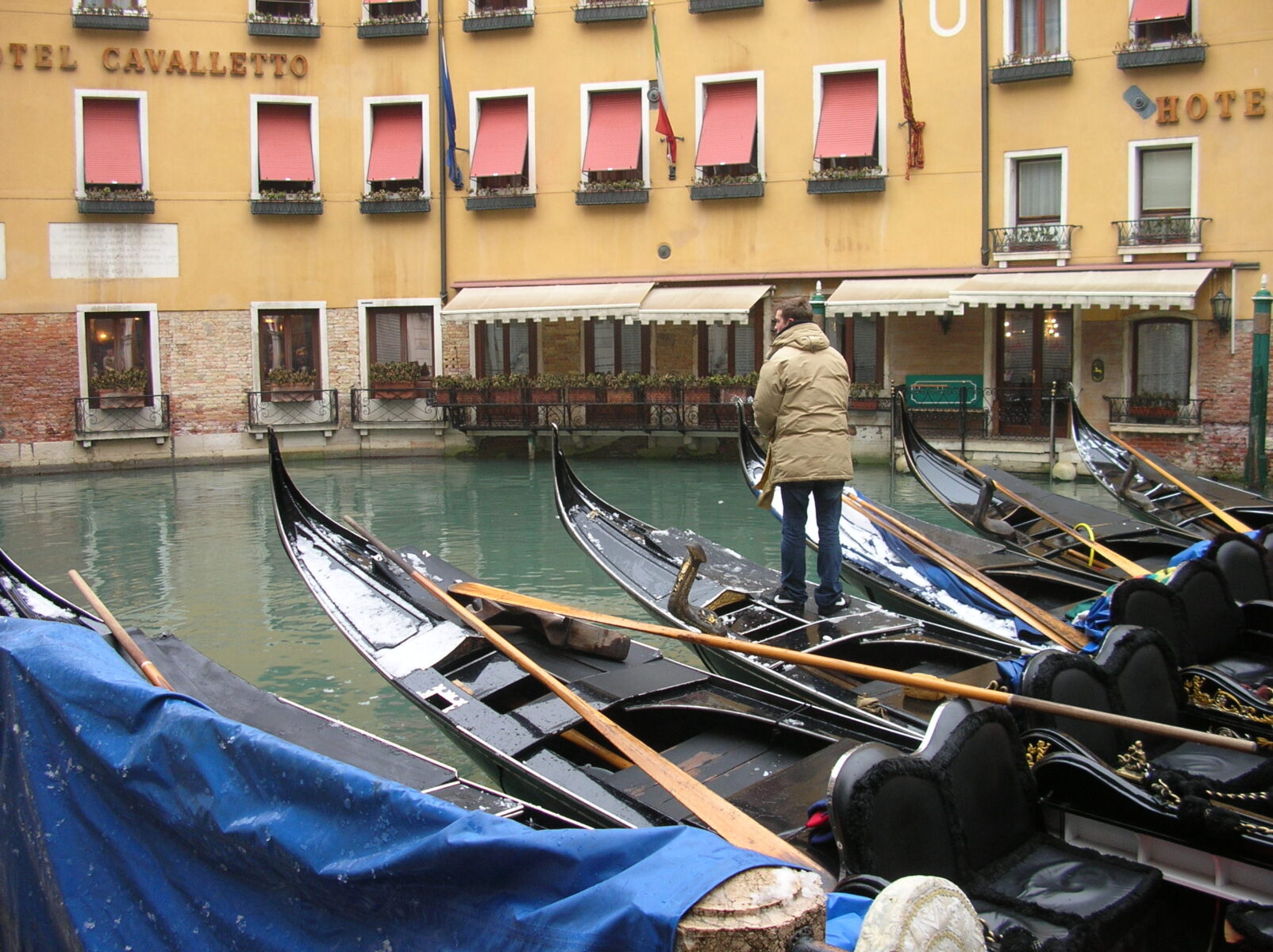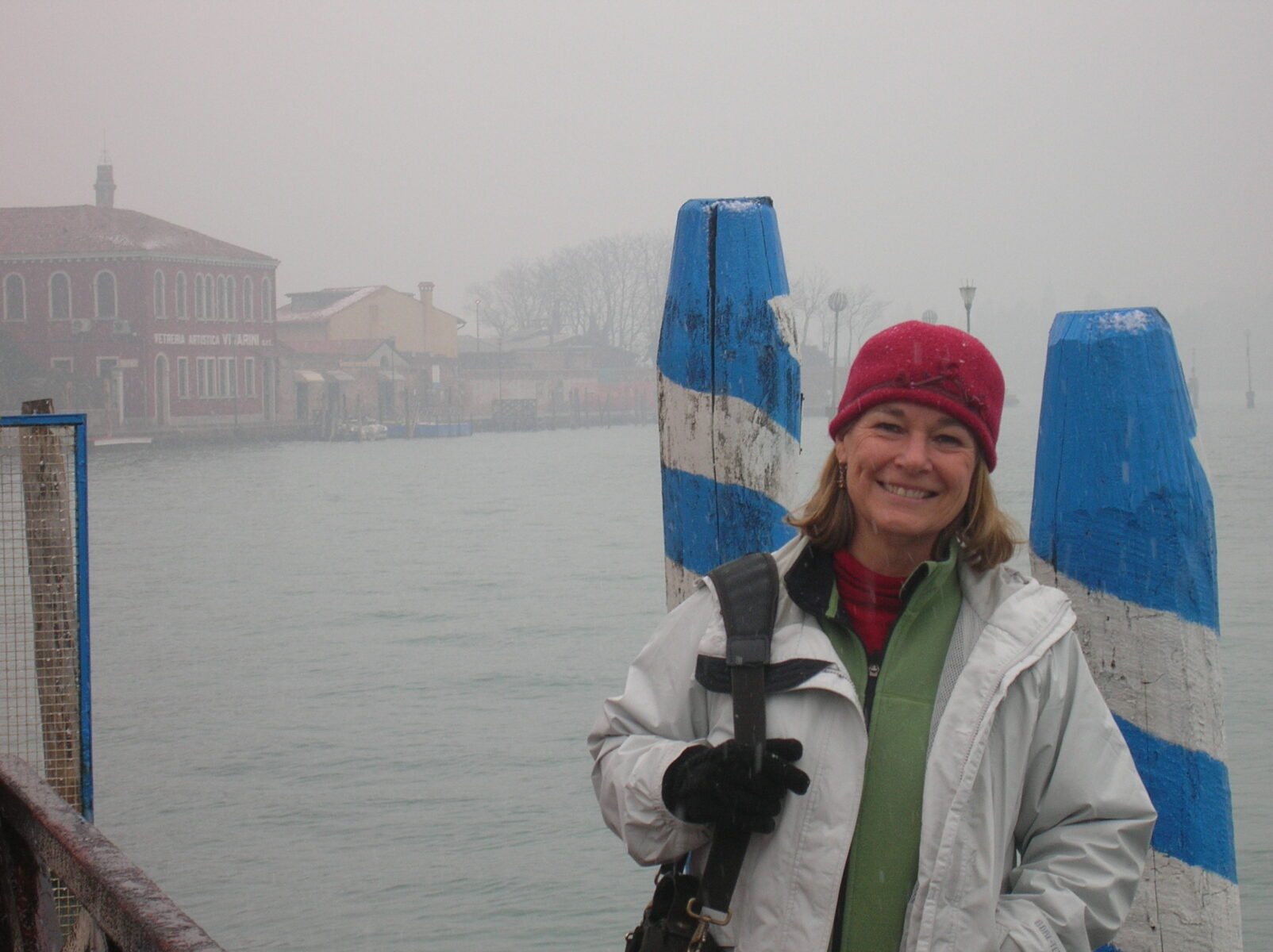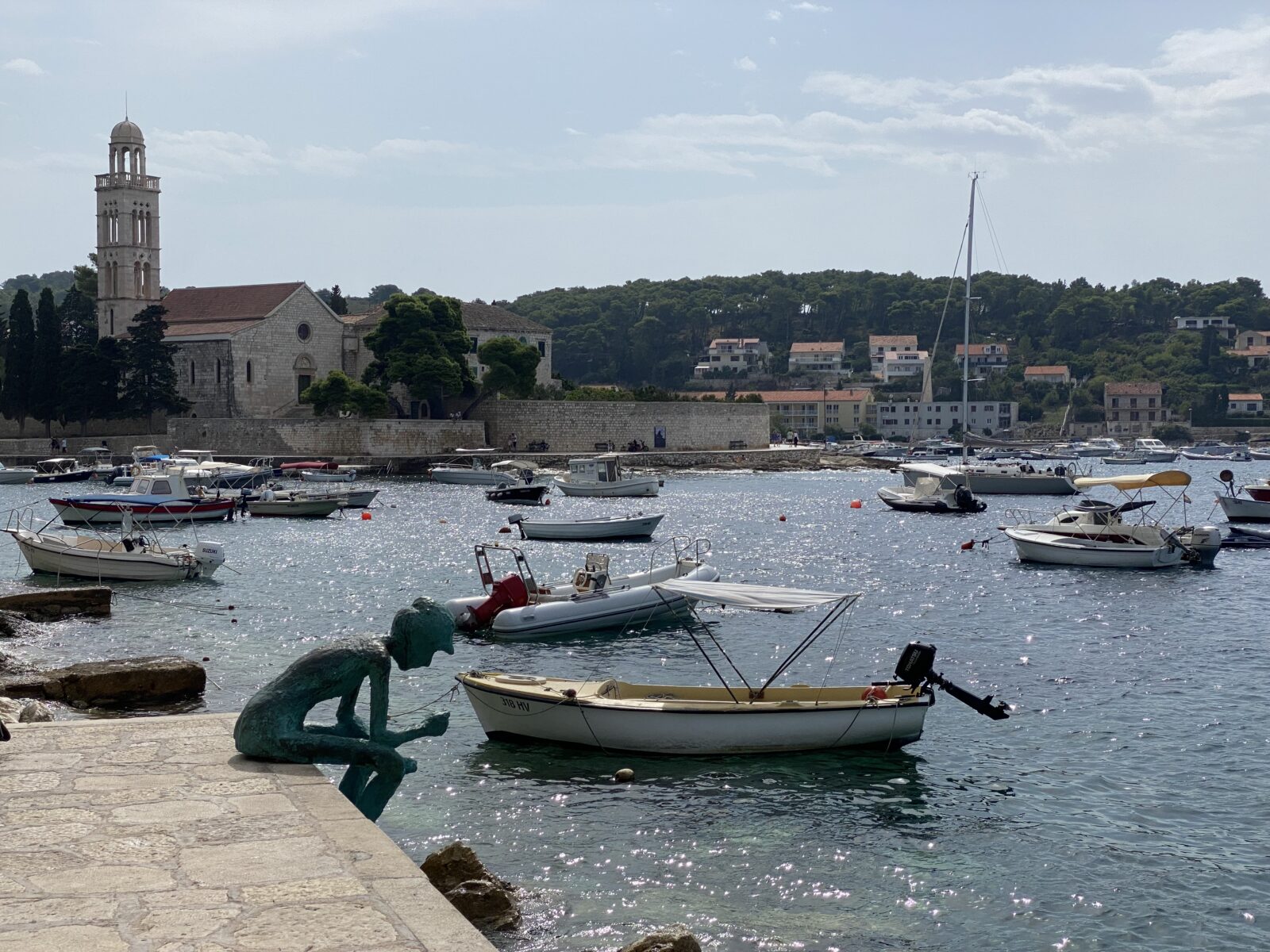I woke up this morning thinking, “Wow! I am in Venice!” I hope I never lose the wow factor about travel, but I must admit that after a month on the road in unfamiliar places, in languages without cognates and with spellings that look like a tossed salad of letters, it is very, very nice to be back in more familiar territory.
Venice has been a complicated city for me. It was the scene of some of my toxic first husband’s most atrocious behavior and thus remained a bleak memory for me for a long time. It was also—and this is still so hard to say—the place I was again a few years later, when I still had not learned that my son Adriano had taken his life. That day I had been in an art glass shop chatting in Italian with the owner, a young man whose family had run the business for several generations. He told me a story about breaking something as a child, and how over time one comes to understand that “Niente e per sempre,” nothing is forever. I agreed, bought a pretty little glass dish for Adriano and caught the train back to Florence, where I was living.
This was in the days when you had to go to an Internet cafe to get email. I got home late that night to several desperate messages. Urgent. Call home immediately. I packed up overnight and was gone the next day. That was when I learned my first huge lesson about nothing lasting forever. I don’t think one ever recovers from a lesson that cruel. I have just moved on, changed into the version of myself that deals with an upended life.
Later visits to Venice have done a lot to soften the feelings of sadness and loss that have overcome me in the past. A wonderful visit with my second husband Jim in a foggy January so cold it snowed a dusting of white onto the sleek black gondolas (see photos). A fantastic night years later with my friend Susan at the Redentore festival, with giant golden fireworks over the lagoon.


And this visit. I walked around last evening and realized after about an hour that I hadn’t raised up the sad memories at all. I hadn’t raised the happy ones either. I simply was in Venice, on these stones, surrounded by these canals, these people. Maybe just being happy in the present is the most profound sign of healing we can possibly hope for.
And then there is the future. Mine feels circumscribed by the fact that I need to be in Barcelona in three weeks to catch my ship. Other than that, it is a beautiful jumble of possibilities. But I remember the moment in that shop, when that young man, who would be more than two decades older now, reminded me that “niente e per sempre.” The best reason of all to rejoice that I am here now.


